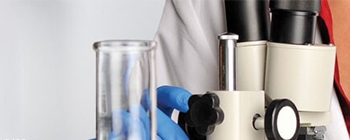Learn More
MHC Class II (I-Ek) Monoclonal Antibody (14-4-4S), eBioscience™, Invitrogen™
Mouse Monoclonal Antibody
$89.25 - $161.00
Specifications
| Clone | 14-4-4S |
|---|---|
| Concentration | 0.5 mg/mL |
| Applications | Flow Cytometry |
| Classification | Monoclonal |
| Conjugate | Unconjugated |
Description
Description: The 14-4-4S monoclonal antibody reacts with the mouse and rat major histocompatibility complex class II, I-E subregion-encoded glycoprotein in mice strains of H-2^k, H-2^d, H-2^p and H-2^r. H-2^b, H-2^f and H-2^s haplotypes do not express the I-E antigen. MHC class II is present on B cells, monocytes, macrophages, and dendritic cells. The 14-4-4S mAb has been reported to block antigen presentation in in vitro assays. This antibody cross-reacts with rat. Applications Reported: 14-4-4S has been reported for use in flow cytometric analysis, immunoprecipitation, complement-dependent cytotoxity and immunohistochemical staining of frozen sections (Biotinylated 14-4-4S, cat. 13-5980, is recommended for IHC). Applications Tested: The 14-4-4S antibody has been tested by flow cytometric analysis of mouse splenocytes and can be used at less than or equal to 0.5 μg per test. A test is defined as the amount (μg) of antibody that will stain a cell sample in a final volume of 100 μL. Cell number should be determined empirically but can range from 10^5 to 10^8 cells/test. It is recommended that the antibody be carefully titrated for optimal performance in the assay of interest. Purity: Greater than 90%, as determined by SDS-PAGE. Aggregation: Less than 10%, as determined by HPLC. Filtration: 0.2 μm post-manufacturing filtered.
MHC (major histocompatibility complex) class II molecules are transmembrane glycoproteins expressed on the surface of professional antigen-presenting cells, such as macrophages, dendritic cells and B cells. Before their exposition on the cell surface, the MHC class II molecules react with endocytosed exogenous antigens, which are then presented to the T cells. The antigen-binding grove between MHC class II alpha and beta chain is open at both ends and is 15-24 amino acid residues long.Specifications
| 14-4-4S | |
| Flow Cytometry | |
| Unconjugated | |
| Mouse | |
| Mouse, Rat | |
| Primary | |
| 4° C |
| 0.5 mg/mL | |
| Monoclonal | |
| Liquid | |
| RUO | |
| IgG2a κ | |
| Affinity chromatography | |
| Antibody |
For Research Use Only.



